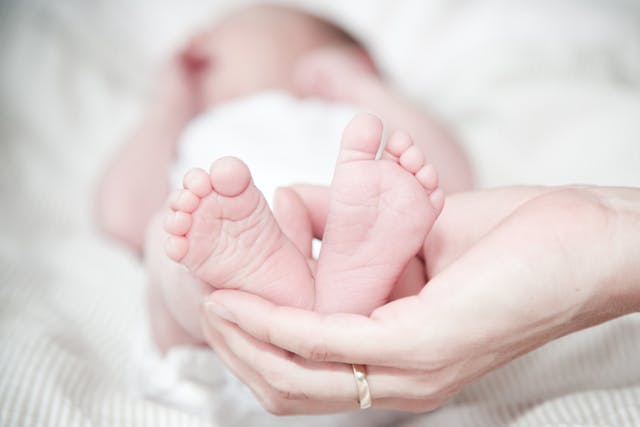Illinois, the prairie state, has broken significant ground in terms of personal identification reform, through the grand reveal of its novel legislation concerning birth certificates. The ‘New Illinois Birth Certificate Law’, as it’s officially known, instigates a revolutionary divergence from previous statutes embraced by the state.
At its heart lies an acknowledgement and respect for evolving societal norms and individual rights. It unfurls broad-minded provisions that tackle modern dilemmas about identity recognition and family structure with inclusivity and progressiveness. This legislative act embodies Illinois’ increasingly sophisticated stance on personal identity affirmation and recognition – setting a precedent that other territories may do well to adopt.
The key aspects of the New Illinois Birth Certificate Law are as follows:
- The law provides a more streamlined process for transgender and intersex individuals to update their birth certificates. This is achieved by removing the previous requirement that an individual must undergo gender reassignment surgery before they can amend their sex marker on their birth certificate.
- It also allows parents who used assisted reproductive technology to be listed on a child’s birth certificate without needing to go through adoption proceedings. This is particularly beneficial for same-sex couples, single parents, and those facing infertility issues.
- Furthermore, it recognizes the rights of unmarried fathers by enabling them to establish paternity and have their names included in the child’s birth certificate if both parties agree.
- Additionally, it permits individuals adopted from foreign countries to obtain an Illinois-issued birth certificate.
This progressive legislation not only simplifies legal processes but also acknowledges diverse family structures and identities. As such, it has been hailed as a significant step towards inclusivity in personal identification laws in Illinois.
Looking ahead at its potential implications:
- Other states may take inspiration from this legislation when revising or introducing new laws regarding personal identification documents.
- It could potentially reduce discrimination faced by transgender and intersex individuals when obtaining identification documents that accurately reflect their gender identity.
- By recognizing diverse family structures, it may contribute towards societal acceptance of non-traditional families.
In conclusion, the revised Birth Certificate Legislation in Illinois signifies a shift towards more inclusive recognition of individual identities and family structures within official documentation. While there will undoubtedly be challenges implementing these changes effectively across all counties within the state; overall, this reform represents significant progress toward equality under law for all citizens regardless of sexual orientation or gender identity.
Key Changes to Illinois Birth Certificate Procedures

The recent reformation of the Birth Certificate Procedures in Illinois has undoubtedly perplexed many, introducing a flurry of more gender-inclusive terminologies. Central to this wave of changes is the groundbreaking inclusion of a ‘non-binary’ selection on birth documents. This innovative stride situates Illinois among a limited number of states that acknowledge and officially record a third gender beyond the traditional male or female classifications. Through this, Illinois waves its flag high as it steadily marches towards an era where gender diversity is not only acknowledged but also accepted.
A burstiness of further amendments can be noticed in how one amends their sex marker on birth certificates. In past times, those yearning to alter such information were obligated to provide official confirmation from a physician stating they had undergone transition-related surgery. The rejuvenated laws have obliterated this prerequisite, substituting it with an individual’s sworn affidavit affirming they’ve undertaken suitable treatment for their intended gender change—making the procedure more welcoming than before. These modifications symbolize an immense leap towards fostering increased inclusivity and respect for personal identity within Illinois boundaries.
Implications of the Updated Law on Birth Certificates in Illinois
Illinois’ amended birth certificate legislation is steeped in extensive implications, distinctly for those individuals who are on a quest to rectify the discord between their gender identity and the gender notation on their birth certificates. In particular, it has carved out space for increased inclusivity by streamlining the path toward name and gender alteration within Illinois. According to these refreshed stipulations, transgender citizens no longer need to undergo surgical processes prior to instigating legal modifications in their birth records. Instead, they can now rapidly adjust the gender notation on these documents via an affidavit that resonates with their identity and lived reality.
Its influence goes beyond merely impacting the transgender community; this revised statute significantly touches upon parents and caregivers as well. A noticeable decrease in bureaucratic impediments relating to procedure involved with amending names and particulars on a birth certificate has been observed. Consequently, this law has paved way for a more adaptable and accommodating framework pertaining to name changes and gender alterations within Illinois’ jurisdiction. As such, it champions substantial progression towards an ambiance imbued with forward-thinking societal ethos and customs.
The Impact on Illinois Parents: What You Need to Know
The reworked ordinances concerning birth records in Illinois ushers in a series of adjustments that impact parents directly. The question, “Can anyone access a copy of an Illinoisan’s birth certificate?” has been the nucleus of extensive discussions after the laws were revised.
A key transformation is the shift in how easily these papers can be accessed. In line with the fresh legislation, only those capable of demonstrating an immediate and substantial interest are permitted to ask for these documents – usually this refers to the individual mentioned on the record, their progenitors, legal custodians or lawful agents.
This adjustment aims at fortifying privacy and protecting personal data of inhabitants therefrom inducing a profound evolution in how birth records procedures are managed within Illinois.
The Procedure to Apply for a Birth Certificate in Illinois After the Amendment
The year 1877 beheld a pivotal stride forward in Illinois, as the state commenced requisitioning birth certificates – an epoch-making advancement in officially registering births. The labyrinthine intricacies of navigating through the application for obtaining such a document might appear daunting, particularly after the recent legislative alterations. However, comprehending these changes is crucial to ensure that one treads smoothly through this process.
Underneath the freshly minted law’s canopy, it’s incumbent upon applicants to provide meticulous documentation demonstrating proof of identity and relationship or interest. This dossier could comprise of valid photo identification, evidentiary material substantiating relationships among other documents. Progressing deeper into this procedure necessitates accurately completing request forms for birth certificates and parting with stipulated fees thereafter.
It is important not to overlook that processing times are fluid entities – they can fluctuate depending on the volume of requests inundating Illinois’ Department of Public Health. The new protocol contrasts starkly with its predecessor; it introduces additional steps post-amendment which need careful adherence by applicants seeking this service either personally, via mail or online – providing multiple avenues for application submission.
This novel provision aims at crafting a more streamlined process thereby assisting residents in efficaciously acquiring requisite documentation – another testament to Illinois’ commitment towards facilitating administrative procedures for her citizens.
How the Change in Law Affects Adoption and Surrogacy in Illinois
The birth certificate legislation that Illinois has recently amended offers a compelling influence on the state’s adoption and surrogacy journeys. Before this legislative document saw light, those who decided to become parents via adoption or surrogacy were forced to decipher a cryptic maze of legal enigmas just for their names to grace their child’s birth certificate. This fresh law cuts through these complexities like a hot knife through butter, ensuring that the hospital-issued birth certificate immediately following the baby’s arrival faithfully depicts the legitimate parents no matter what biological ties exist.
Illinois’ surrogacy agreements currently enjoy considerable ease due to this law sanctioning a pre-birth designation of parentage. The gravity of such an alteration implies that prospective parents engaging in surrogacy arrangements can now secure their baby’s birth certificate devoid of having to endure postnatal legal battles. This transition not only polishes up any cumbersome legal processes tied with such arrangements but also bestows intended parents with reassurance and validation. It marks yet another stride forward in recognizing and safeguarding rights for families sculpted from alternative paths within Prairie State.
Transgender Rights: The Role of the Amended Birth Certificate Law
In an innovative legal maneuver, Illinois has turned its attention to the oft-overlooked matter of transgender rights and representation in formal paperwork. The updated statute related to birth certificates now bestows upon individuals the freedom to modify their gender marker on said documents without need for surgical alteration. This progressive leap towards inclusiveness affords transgender individuals possession of documents that genuinely echo their identities, shattering societal standards previously enforcing compliance.
The implications of this revision are far-reaching. It represents not just a triumph for those championing transgender rights but also paves the way toward genuine self-expression for all denizens of Illinois. The legislation acknowledges the persistent struggles faced by members of the transgender community, alleviating discomforts arising from discordant identities on official documentation while simultaneously introducing an extra degree of privacy protection. As such, it cultivates a significantly more supportive and accepting climate for everyone regardless of their identified gender identity. Undeniably, it’s an empowering move embodying the state’s dedication to equality and inclusion.
FAQs
The reworked legislation concerning birth certificates in Illinois now provides transgender individuals with the ability to alter their gender marker and name on their birth records without necessitating gender reassignment surgery.
Major adaptations within Illinois’ protocols for acquiring a birth certificate revolve around eliminating surgical requirements. Now, only an attestation from a health care professional verifying the individual’s transition is demanded. Additionally, there is provision for altering one’s name on said document.
This revamped legislation grants transgender persons official acceptance of their chosen gender identity, safeguarding them from bias when it comes to employment opportunities, housing facilities and access to public services. It also cultivates inclusivity by formally acknowledging their transitions.
For guardians of transgender youths, this law offers an uncomplicated and non-invasive pathway for these youngsters to modify information present on their existing documents. Moreover, it aids these caretakers as they support their child’s transitioning journey.
The procedure encompasses submission of an authorized declaration from a medical practitioner corroborating that person’s transition along with submitting necessary paperwork requesting amendments to current documentation with the state’s Department Public Health division
The alteration allows transgenders legally recognised under affirmed identities which directly impacts rights & responsibilities pertaining towards adoption/surrogacy cases allowing them either adopt or become surrogate parents under their affirmed gender
The restructured birth certificate legislation is a keystone in the fight for transgender rights, offering legal recognition to gender identities. This aims at reducing discriminatory practices and nurturing an environment that celebrates diversity. Furthermore, it simplifies procedures involved in amending one’s birth certificates thus reflecting one’s true identity.
